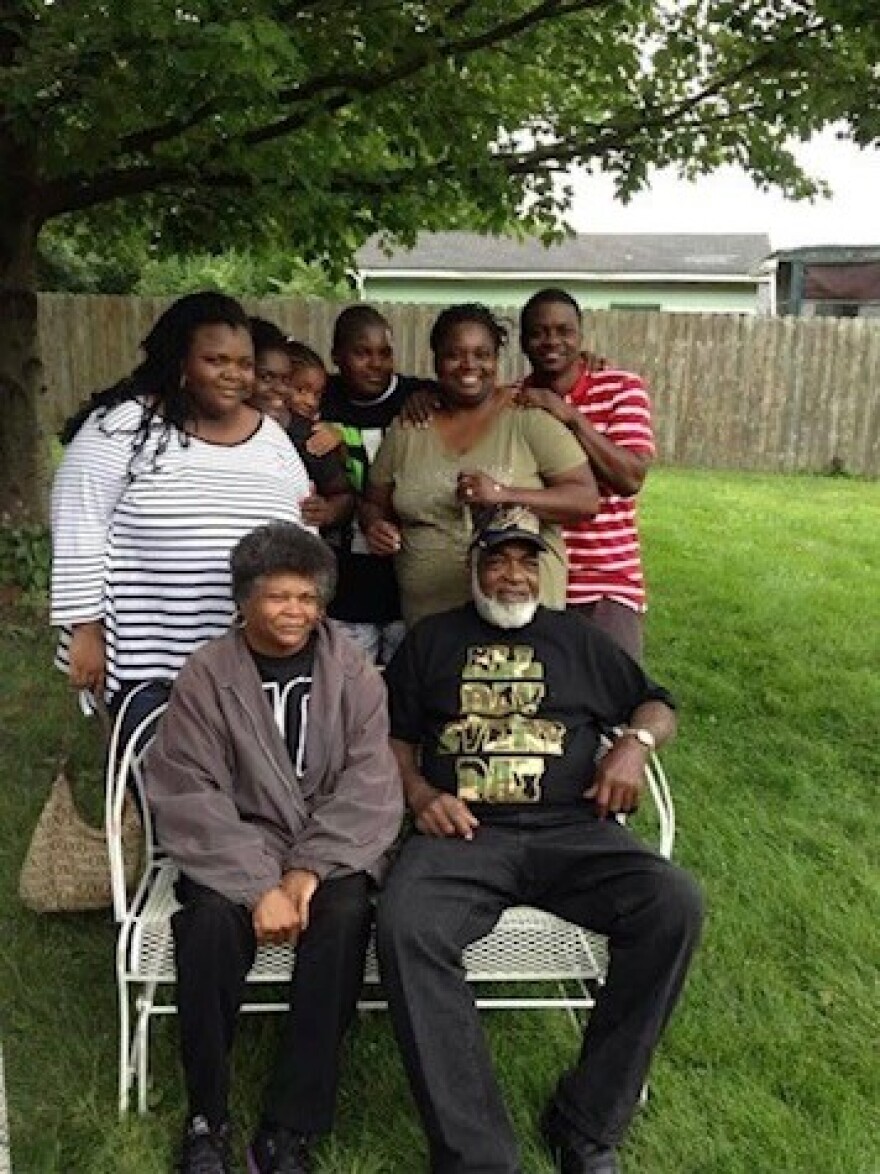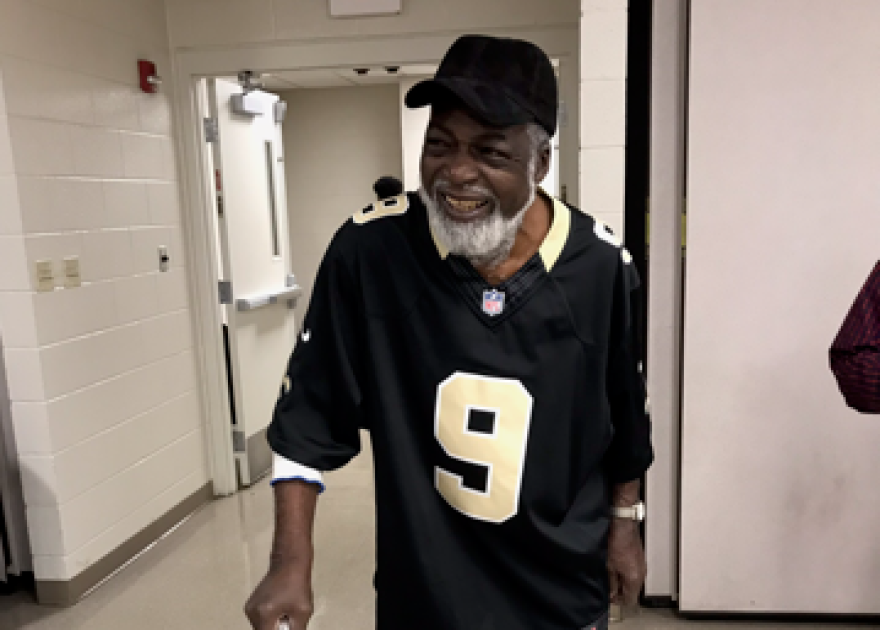Curtis Henry Sr. has been dealing with pipes and poop for 57 years. The Bloomington-Normal plumbers union is celebrating its longest standing member. Over his career, Henry has seen the trade and the community evolve.
Plumbing was in the family for Henry. His uncle, Louis Garrison, was the first Black plumber in Bloomington. Henry affectionately calls him "Old Man Garrison." He was well-known around town and helped bring many other Black men into the profession.

Henry was born and raised in Louisiana. But his uncle thought he'd lead a better life here.
“They wanted to bring me up here for me to go to school, because I was one of those bad boys—didn’t want to go school or do anything," Henry said. "I wouldn’t do it. I wouldn’t listen. One day, I got upset with my dad and my mom. I jumped in my car and started driving around. And that’s how I ended up in Illinois.”
This was in the 1940s. Henry was a teenager.
Things weren't easy in Bloomington-Normal, either. The first time Henry tried to help out with a job, he filled in a hole in someone's yard after his uncle's crew finished working.
When the man came back that Monday morning, he said, ‘Who leveled this ground off over here?’ Old Man Garrison said, ‘My nephew did that.’ And he said, ‘Man, if they would’ve caught him on that backhoe, they would’ve locked his ass up in jail.’ That’s exactly what he said. Because Black people weren’t allowed on those machines around here," Henry said.
The next time around, Henry did it all by hand. He dug out a 6-by-5 foot hole with nothing but a shovel in under four hours—much to the surprise of his uncle.
"(Old Man Garrison) jumped out of that truck to come over and look. I had all under the pipe cleaned up and everything—the whole thing done," Henry said. "He went and got two of the plumbers out of his shop to see what I'd done. He said if they'd hired people, it would've taken a day and a half to do what I'd just done in four hours. That's when he said, 'We're going to make a plumber out of you.'"
Henry learned plumbing the same way many others did: in his uncle's basement on Empire Street. Soon enough, he was working on some of the biggest projects in the community.
“My first big job I had in Bloomington, Illinois, was at State Farm. I put the sewer into that building," Henry said. "On the west side of State Farm, there was nothing but a pond. People used to fish and hunt out in that pond. That’s where the sewer was.”
Henry also did work on Bloomington High School and newly constructed buildings on the campus of Illinois State University.
Henry said Black men weren't always welcome on job sites.
“When I started my job, it was hard. You were only allowed to do some jobs. Other jobs, you couldn’t go on. That’s the way it was," Henry said. "But like I said, you just do what you can do and if they don’t like it or don’t want you to do it, that’s fine.”
That changed over nearly six decades in the industry.
Henry said homeowners were usually respectful, if you follow one simple rule.
"When I go in somebody’s house, I take my shoes off at the door," Henry said. "I get their plumbing work done and then walk right out of there.”
Henry said not all of the changes are for the better. He said the quality of construction has degraded over the years—and plumbing is no exception.
“I’m going to be honest with you, I would not put no plastic pipes in nobody’s house in this world," Henry said. "But you know, I don’t go out there and preach that because they’d run out of Bloomington. I've got to keep my mouth shut.”

The next generation of plumbers still relies on Henry as a source of wisdom and mentorship.
Henry said he gets calls wanting advice on plumbing dilemmas. He said he can solve them without even seeing the job.
“Plumbing work is not hard. You just got to understand what to do and what not to do," Henry said. "To me, it’s easy.”
Henry hasn't worked in three years. His wife, Cheryl Henry, got sick and needed a full-time caregiver. She passed away in November. His daughter died of cancer in February.
It's been a hard year. To top it all off, Henry injured his back and isn't able to move very well.
At age 87, most people would be happy to kick back and relax. But Henry's ready to get back to the trade. He said he misses it a lot.
“If my back gets better, I might just get out there and do 50 more years of plumbing," he said.
When he's back on his feet, Curtis Henry said, his first call will be down to the union hall.
There's no subscription fee to listen or read our stories. Everyone can access this essential public service thanks to community support. Donate now, and help fund your public media.



